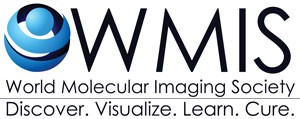
“Radiotheranostics: Navigating Developmental, Commercial, and Clinical Hurdles” – September 9, 2024
This full day session lays the groundwork for understanding the current challenges faced during discovery, development, and commercialization of new radiotheranostic agents. Identifying promising targets, designing effective imaging diagnostics and radionuclide therapy, and translating them into clinical practice is a multi-faceted process with unique hurdles.
This workshop offers a unique opportunity to learn from senior leaders in the field who have achieved remarkable success and maintain a robust pipeline of innovative radiotheranostics. You will have the chance to hear firsthand about their challenges, success stories, and engage directly with these experts by presenting your own unique cases or issues for interactive discussion.
Don’t miss this chance to enhance your understanding, forge new connections, and propel your radiotheranostics work to new heights.
AGENDA
Part 1 – 10:00AM – 11:50AM: Academic and Industry Challenges
10:00-10:10: Introduction
10:10-10:30: Clinician Perspectives to Drive Radionuclide Theranostic Innovation
10:30-10:50: Radionuclide Theranostics: Expanding the Physician’s Therapeutic Arsenal
10:50-11:30: Supplying the Source: Isotope Production for Radiotheranostic Success
11:30-11:50: Bridging the Gap: Aligning Preclinical Targets with Clinical Realities
Part 2 – 11:50AM – 6:00PM: Posters, Breakouts, and Keynote Lecture
11:50-1:05: Lunch & Poster Session
1:05-1:20: Introduction to Breakouts
1:20-3:20: Breakouts Based on First Talks – 6 breakouts
3:35-4:35: Lessons Learned/Breakout Recap
4:35-5:00: Keynote Lecture
5:00-6:00: Cocktail Reception
PART 1: PRESENTATIONS
10:00 - 10:10: Introduction
Introduction by Translation of New Therapy (TNT) Interest Group chairs Jeff Kovacs, Giacomo Pirovano, and Marty Pomper
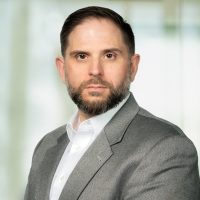
Jeff Kovacs, PhD
Vice President Oncology
Aktis Oncology
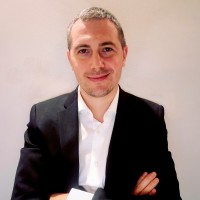
Giacomo Pirovano, PhD
Director of Discovery Strategy and Business Development
Evergreen Theragnostics
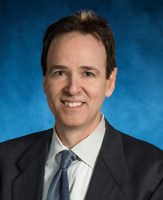
Martin Pomper, MD PhD
Effie and Wofford Cain Distinguished Chair in Diagnostic Imaging
UT Southwestern
10:10- 10:30: Clinician Perspectives to Drive Radionuclide Theranostic Innovation
This session delves into the invaluable insights of clinicians who administer radionuclide theranostics. By understanding their perspectives on real-world challenges, unmet needs, and desired improvements, researchers can align their efforts with clinical demands. This cross-disciplinary dialogue aims to catalyze the development of more clinically translatable and impactful theranostic agents.
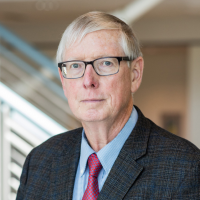
Speaker: Richard L. Wahl, MD
Professor of Radiology;
Professor of Radiation Oncology
Washington University School of Medicine
Dr. Wahl is a leader in the use of PET scans to diagnose human cancers and other diseases and was among the first to harness the power of the immune system to precisely target radiation therapy to cancers, a technique that has become known as radioimmunotherapy. He has been at the forefront of efforts to combine quantitative data from multiple kinds of scans to form so-called fusion images that can help physicians more precisely diagnose and characterize cancers.
10:30- 10:50: Radionuclide Theranostics: Expanding the Physician's Therapeutic Arsenal
This session highlights the growing role of radionuclide theranostics in personalized medicine. Emerging radiopharmaceutical agents and clinical applications of this transformative approach to combining therapy and diagnostics will be explored.
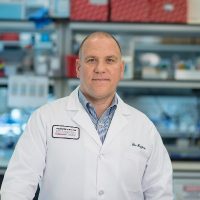
Speaker: Tim Heffernan, PhD
Vice President, Oncology Research
MD Anderson Cancer Center
Dr. Heffernan is a cancer biologist and translational researcher who has a passion for identifying innovative solutions to complex problems. He aims to address the challenges in oncology drug discovery and development through patient-centered research that integrates the best of academic, industrial and clinical science.
10:50- 11:30: Supplying the Source: Isotope Production for Radiotheranostic Success
Reliable supply of medical isotopes is crucial for radiotheranostic advancement. This session examines innovations in isotope production methods and cyclotron technologies to meet growing demands. Experts discuss strategies to scale up manufacturing, ensure consistent quality and specific activity, and distribute isotopes efficiently to facilitate broader clinical adoption of radiotheranostic therapies.
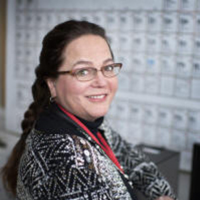
Speaker: Cathy Cutler, PhD
Chair, Isotope Research and Production Department
Brookhaven National Laboratory
Dr. Cutler’s research focuses on developing production and separation methods for high specific activity radioisotopes, creating a suite of diagnostic and therapeutic agents tailored for individual needs, which has been funded by the DOE, NIH, NSF and public foundations. She brings more than 20 years of experience in the development and evaluation of radiopharmaceuticals, utilizing bioinorganic and radioanalytical chemistry to develop and evaluate radiopharmaceuticals for both diagnosis and therapy.
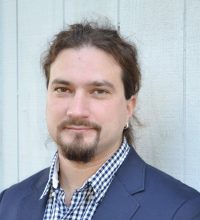
Speaker: Valery Radchenko, PhD
TRIUMF Research Scientist
Adjunct Professor, University of British Columbia
The increasing incidence of cancer worldwide is pushing clinicians and researchers to broaden and improve the available diagnostic and treatment arsenal. TRIUMF is a national and international hub for the production of many medical radionuclides for imaging and therapy of cancer. TRIUMF operates several cyclotrons which are currently utilized for various purposes (including medical isotope production). TRIUMF also operates one of the largest cyclotrons in the world with 500 MeV proton energy; this particle accelerator could enable the production of many novel radionuclides for nuclear medicine.
11:30 - 11:50: Bridging the Gap: Aligning Preclinical Targets with Clinical Realities
This session explores strategies to bridge the divide between preclinical research and clinical realities. Experts will discuss strategies to reconcile divergences between preclinical models and patient populations, addressing factors like biodistribution, dosimetry, and therapeutic windows. The goal is to identify key considerations for accelerating the development of clinically relevant radionuclide theranostics.
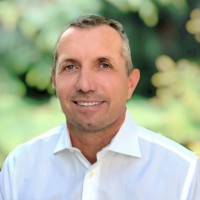
Speaker: Riccardo Canevari
Chief Executive Officer
Radiopharm Theranostics
Mr. Canevari has broad and deep experience across specialty pharma, oncology and radiopharmaceuticals. He was most recently Chief Commercial Officer of Novartis company Advanced Accelerator Applications, one of the leading radiopharmaceutical and nuclear medicine companies globally. He was responsible for global commercial strategy and country organisations in ~20 countries across North America, Europe and Asia. He was lead for Lutathera in-market growth strategy and execution to build a blockbuster asset and lead on the prelaunch plan for Lu-PSMA 617 in metastatic prostate cancer.
PART 2: DISCUSSIONS
11:50 PM - 1:05 PM: Lunch and Posters
Enjoy a boxed lunch while browsing insightful posters showcasing the latest innovations from our abstract submitters and industry partners. Discover new ideas, make valuable connections, and gain inspiration from leaders in your field.
1:20-3:20 PM: Breakout Sessions
Led by the Speakers and TNT Leadership, these breakout sessions will build upon the insights shared during the presentations in Part 1.
These breakout sessions are designed to encourage participants to delve deeper into specific challenges, share their unique perspectives, and collectively explore potential solutions. Attendees will have the chance to collaborate with peers, industry experts, and academic researchers, leveraging the diverse expertise within the group.
The goal of each breakout session is to develop a whitepaper article from the discussion to be published in Molecular Imaging and Biology.
| Breakout Session 1: 1:20-2:20 PM | ||
| A) Today’s Research, Tomorrow’s Practice: How to Build a Program From End to End | B) Breaking Through the Slog: Access to the Right Isotopes for Development and Translation | C) Combining Theranostics with Other Oncology Modalities |
| Breakout Session 2: 2:20-3:20 PM | ||
| A) Clinical Theranostics: The Cutting Edge 2025 | B) How to Pick Winners in Early Preclinical Development | C) Next Generation Radionuclide Therapeutics |
| 3:20–3:35 PM: Break |
| 3:35-4:35 PM: Breakout Recap |
4:35-5:00: Keynote Presentation
The Keynote on theranostics and its impact on healthcare provides a comprehensive overview of the evolving role of theranostics. The discussion begins by exploring the future trajectory of theranostics, emphasizing the critical importance of early discovery in disease management.
Dr. Lewis also will explore how theranostics is increasingly integrating with traditional pharmaceutical drug development. With significant investments and ongoing consolidation within the pharma industry, theranostics is positioned as a transformative approach that bridges diagnostics and therapy, offering advanced treatment options. This dual capability allows for more precise targeting of diseases, improving the efficacy of treatments and minimizing side effects.
Finally, the keynote will provide a discussion of the current landscape, reflecting on how theranostics is reshaping healthcare. The consolidation within the pharmaceutical industry, coupled with advances in imaging and molecular diagnostics, suggests a future where theranostics plays a central role in medicine. The discussion concludes by considering the potential challenges and opportunities that lie ahead, emphasizing the need for continued innovation and collaboration across the healthcare sector.
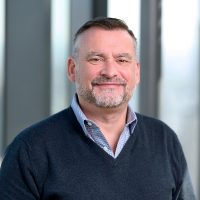
Speaker: Jason S. Lewis, PhD
Emily Tow Chair in Oncology
Vice Chair for Research, Department of Radiology
Chief, Radiochemistry and Imaging Sciences Service
Director of the Radiochemistry and Molecular Imaging Probe Core Facility
Memorial Sloan Kettering Cancer Center
Dr. Lewis is Vice Chair for Research, Chief of the Radiochemistry and Imaging Sciences Service, and Director of the Radiochemistry and Molecular Imaging Probe Core Facility. He heads a laboratory in the Sloan Kettering Institute’s molecular pharmacology program and is a professor at the Gerstner Sloan Kettering Graduate School of Biomedical Sciences. He has published more than 200 papers, books, book chapters, and reviews on cancer imaging. He serves on grant review panels for the National Institutes of Health and National Cancer Institute and a number editorial boards.
Dr. Lewis is researching new ways to use PET imaging to diagnose cancer as well as developing new radioimmunotherapies for treating this disease. His research is supported by the National Institutes of Health, the Department of Education, and philanthropy.
5:00 PM - 6:00 PM: Cocktail Reception
Cap off an insightful day by interacting with other attendees and WMIS members while enjoying a refreshing cocktail.
